In the wake of the escalating electronic waste crisis in India, where improper disposal poses environmental hazards, GEM Enviro Management Limited (GEM) stands out as a pioneering force in responsible and sustainable e-waste management practices. The burgeoning e-waste predicament has spurred significant shifts in societal attitudes towards waste disposal, prompting organizations like GEM to play a pivotal role in reshaping these behaviors. This imperative is reflected in a recent interview with Mr. Sachin Sharma, the Founder and Director of GEM.
Mr. Sharma sheds light on GEM's expertise in e-waste collection, dismantling, recycling, and compliance, detailing how these services contribute to responsible e-waste management. The interview delves into their intriguing concept of plastic credits, its alignment with SEBI's BRSR mandate through ESG Audit & Advisory services, active involvement in Rag-Picker's Welfare, and collaborations with collection centers and Urban Local Bodies for plastic waste handling. Moreover, GEM's initiatives have demonstrated significant impact, preventing over a million metric tons of waste from reaching landfills and engaging over 5,000 waste pickers nationwide.
The interview provides a compelling narrative of how GEM's initiatives are shaping a positive impact on the environment and communities, setting the stage for a transformative journey in India's sustainability landscape.
Scroll down to read the full interview:
Q. Could you elaborate on GEM's expertise in E-Waste collection, dismantling, recycling, and compliance, and how these services contribute to responsible and sustainable E-Waste management practices?
A. GEM specializes in the collection of various types of waste, including plastic, e-waste, and battery waste, employing diverse methods like engaging rag-pickers, collaborating with small scrap dealers, and directly collecting from organizations producing e-waste. The meticulous approach ensures that all gathered e-waste is seamlessly directed into the recycling stream. Additionally, we extend support to recyclers, aiding them in meeting government compliance standards and obtaining registration on platforms such as the CPCB portal. Complementing these efforts, GEM actively orchestrates awareness campaigns, emphasizing the importance of proper e-waste disposal and the necessity of recycling. Notably, GEM's cornerstone in responsible e-waste management lies in its efficient collection and segregation processes. Their well-organized systems ensure the proper gathering of end-of-life electronic devices, coupled with comprehensive worker training to identify and separate various e-waste components. Through these initiatives and by advocating for responsible disposal services, GEM plays a crucial role in reshaping societal attitudes and behaviours towards e-waste.
Q. The concept of plastic credits is intriguing. Can you provide more insights into how the organization’s plastic credits service operates, and how it aids businesses in offsetting their plastic footprint while adhering to regulatory and environmental standards?
A. GEM, registered as a consultant with Verra, a global organization setting standards for climate action, actively assists collection agencies and recyclers in obtaining plastic credits aligned with Verra's standards. GEM's expertise guides these entities through the certification process, ensuring compliance and increasing their chances of success. Additionally, GEM aids in monetizing these plastic credits, showcasing its commitment to supporting and empowering efforts in plastic waste reduction and recycling.
Q. In aligning with SEBI's BRSR mandate, the establishment offers ESG Audit & Advisory services. How does GEM assist companies in integrating ESG principles into their business processes, and what strategic advisory is provided to enhance environmental, social, and governance aspects?
A. ESG principles are crucial for sustainable and ethical business practices, and GEM plays a vital role in guiding companies through this transformative journey. GEM starts by assessing a company's current ESG performance and then tailors a strategy to align with industry standards and regulatory requirements. This strategy includes governance enhancement, environmental sustainability, and social responsibility.
GEM assists in creating or enhancing governance structures to oversee ESG initiatives, embedding responsibility and accountability throughout the organization. They also aid in adopting sustainable practices, optimizing resource use, and implementing eco-friendly solutions to minimize environmental impact. Socially, GEM helps develop policies for fair labor practices, diversity, and community engagement, fostering a positive corporate culture.
Moreover, GEM works on governance enhancement, advising on corporate structures, disclosure practices, and ethical decision-making processes. They assist in establishing robust monitoring and reporting mechanisms, allowing companies to track progress against ESG goals and build trust with stakeholders through transparent reporting.
Q. The organization is actively involved in Rag-Picker's Welfare. Could you shed light on the initiatives or programs in place and how they contribute to creating a positive impact on the community and the environment?
A. GEM consistently conducts various welfare programs aimed at supporting rag-pickers. These initiatives encompass health check-ups, skill development programs, and the distribution of safety kits, shoes, and clothing items. Remarkably, GEM orchestrates over 20 such programs annually, focusing on enhancing the well-being and livelihoods of rag-pickers.
Q. The establishment has collaborated with numerous collection centres and executed MoUs with Urban Local Bodies for plastic waste handling. How do these collaborations enhance GEM's reach and impact, especially in the context of urban waste management?
A. GEM has established partnerships with multiple collection centres and Urban Local Bodies nationwide, creating an extensive ecosystem for plastic waste collection. This network grants GEM access to diverse waste streams across the country. Crucially, GEM ensures the proper recycling or co-processing of all collected materials, affirming a responsible and effective waste management system through these collaborations.
Q. Can you share specific success stories or notable achievements resulting from GEM's sustainability services, such as E-Waste management, plastic credits, or collaborations with Urban Local Bodies, and how these initiatives have made a positive impact on the environment and communities served?
A. GEM's commitment to a circular economy has driven significant strides in resource sustainability. In the realm of waste management, GEM facilitated the collection, recycling, or sustainable disposal of over 3.0 lac MT of waste in 2022-23. Impressively, it prevented more than 1.0 million MT of waste from reaching landfills to date. Engaging directly or indirectly with over 5,000 waste pickers nationwide, GEM positively impacts their lives.
Moreover, GEM's educational outreach initiatives play a crucial role in fostering responsible waste management practices among individuals. By imparting knowledge on recycling, composting, and waste reduction techniques, these programs empower households to embrace sustainable habits. This increased awareness not only drives behavioural changes but also instils a sense of environmental stewardship at the grassroots level.
Q. The organization engages in Information, Education, and Communication (IEC) activities. Could you share more details about these initiatives and how they contribute to raising awareness about responsible waste management, environmental sustainability, and EPR compliance?
A. GEM orchestrates diverse awareness programs focusing on the significance of recycling, proper waste disposal methods, and the importance of waste segregation. These initiatives cater to various demographics, including children, young adults, and the general public. The programs are conducted across different settings such as schools, colleges, universities, and office spaces. Impressively, GEM hosts 15-20 such impactful programs annually, disseminating crucial knowledge about responsible waste management practices.
Q. What are the GEM’s future plans and vision for sustainability services? Are there specific areas or initiatives the company aims to expand or enhance in the coming years to contribute further to environmental preservation and responsible waste management?
A. Moving forward, GEM remains committed to environmental sustainability and waste management. Expanding its product portfolio, GEM plans to include Tyre waste alongside its current focus on plastic, e-waste, and Battery waste. This strategic expansion aligns with GEM's ongoing dedication to diversify its efforts in waste management, further contributing to a more comprehensive approach towards environmental sustainability.





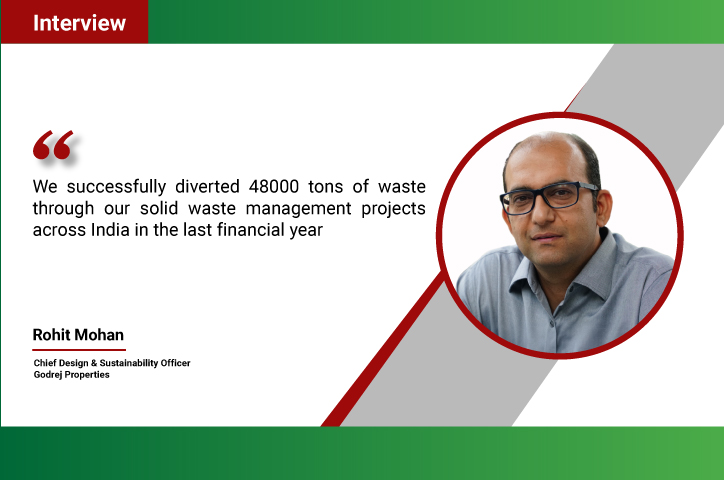
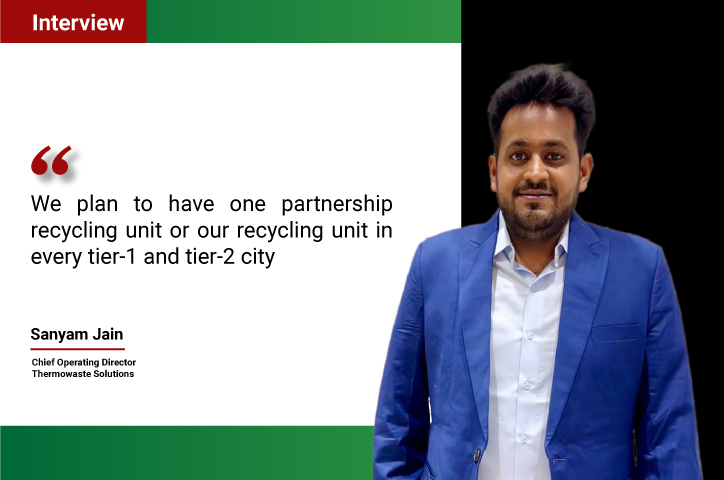
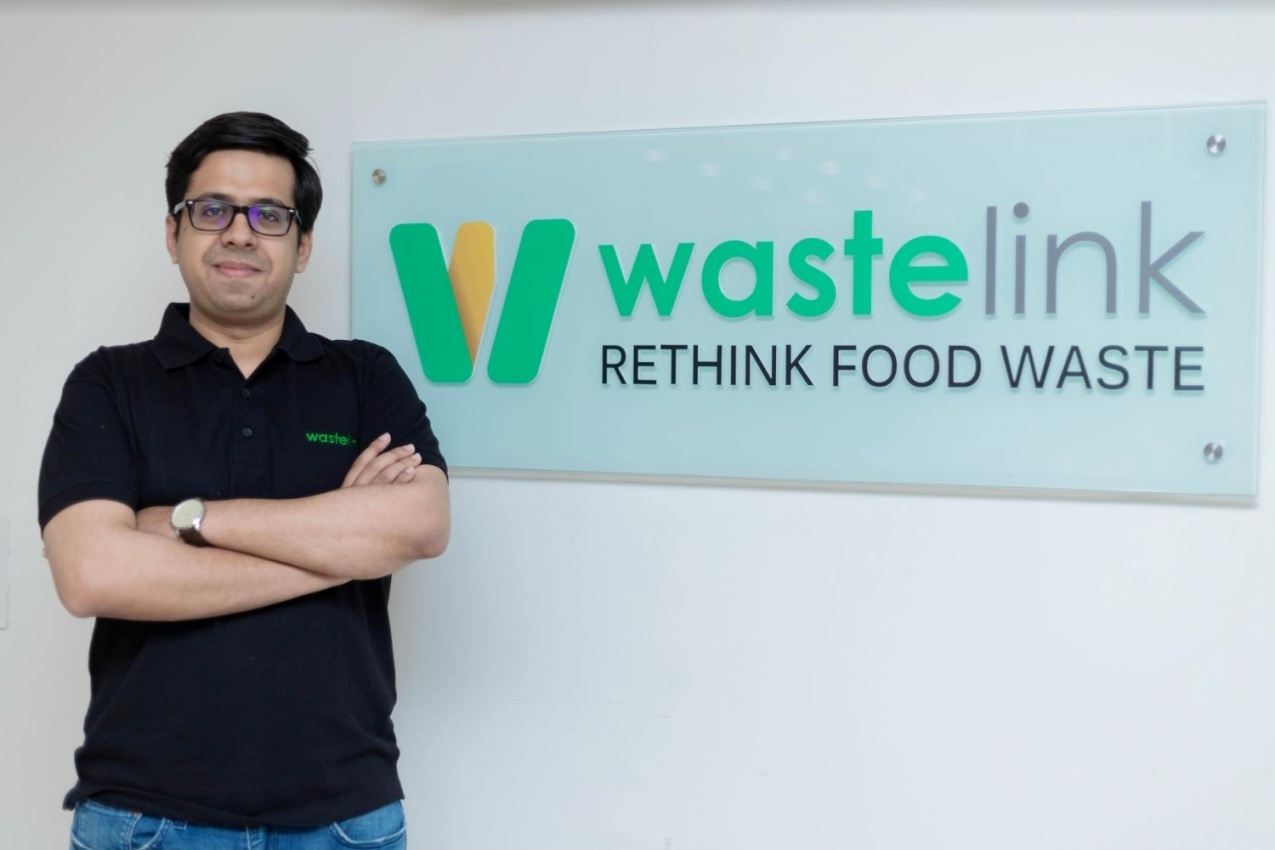
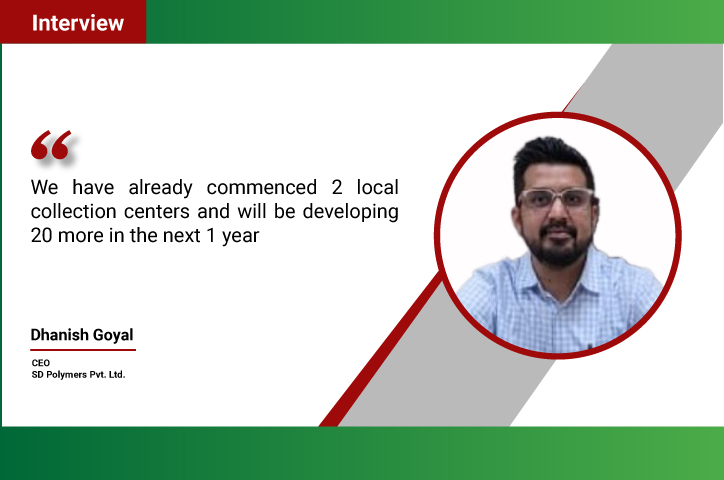
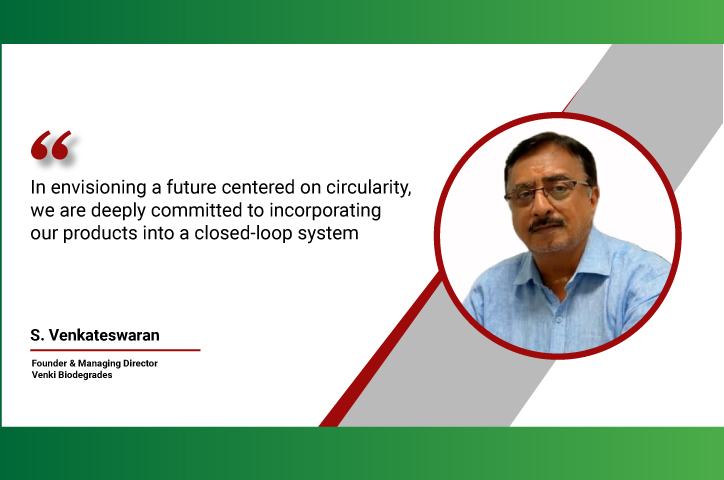










.jpg)



